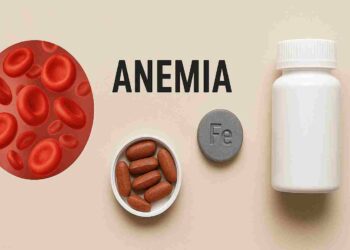The connection between what we eat and how we feel has never been clearer than in the relationship between diet and gut health. Discovering the best foods for gut health can transform not just your digestive comfort but your overall well-being. Your gut, home to trillions of microorganisms collectively known as the microbiome, influences everything from your immune function to your mental health. The foods you consume daily can either nurture this delicate ecosystem or disrupt it, leading to consequences that extend far beyond digestive discomfort. This comprehensive guide explores the science-backed foods that can help you improve your gut and, by extension, create a healthy gut for a healthier you.
The Gut Microbiome: Your Internal Ecosystem
Before delving into the best foods for gut health, it’s important to understand what we’re nourishing. Your gut microbiome consists of approximately 100 trillion bacteria, along with fungi, viruses, and other microorganisms. These tiny inhabitants aren’t merely passengers—they’re active participants in your health, helping to:
- Digest food and absorb nutrients
- Regulate your immune system
- Protect against harmful pathogens
- Produce certain vitamins and short-chain fatty acids
- Communicate with your brain via the gut-brain axis
The composition of your gut flora is unique to you, shaped by factors including genetics, family history, environment, medication use, and most significantly, diet. By intentionally consuming the best food for gut health, you can cultivate a diverse and resilient microbiome that supports your overall digestive health.
Fermented Foods: Living Nutrition for Your Gut
Fermented foods stand at the forefront of the best food for gut health categories. These foods undergo a process where natural bacteria feed on the sugar and starch, creating lactic acid and various beneficial compounds that help with digestion.
Yogurt and Kefir
Plain, unsweetened yogurt with live active cultures is perhaps one of the most accessible and best foods for gut health. A serving provides billions of beneficial bacteria, particularly Lactobacillus and Bifidobacterium strains. Beyond probiotics, yogurt offers:
- High-quality protein
- Calcium
- B vitamins
- Easily digestible nutrients due to the fermentation process
Kefir, yogurt’s tangier cousin, often contains an even broader spectrum of beneficial bacteria and yeasts, making it an exceptional best food for gut health for those who can tolerate dairy. Its liquid consistency makes it versatile—drink it straight, blend it into smoothies, or use it as a base for dressings.
Sauerkraut and Kimchi
Fermented vegetables like sauerkraut (fermented cabbage) and kimchi (Korean fermented vegetables, typically cabbage and radishes) are potent sources of probiotics. What makes these options particularly valuable as the best foods for gut health is their dual action:
- They provide live beneficial bacteria
- Their fiber content serves as prebiotic food for your existing gut microbes
Unpasteurized versions found in refrigerated sections contain the most live cultures. Even a small serving—just a few tablespoons daily—can contribute significantly to microbial diversity and support a healthy gut.
Miso and Tempeh
These traditional soy-based ferments offer unique benefits as the best food for gut health for those seeking plant-based options:
- Miso: This fermented soybean paste contains Aspergillus oryzae (koji), which produces enzymes that break down proteins and carbohydrates, making nutrients more bioavailable
- Tempeh: This fermented soybean cake provides a complete protein along with beneficial bacteria from the fermentation process
Both foods contain compounds called isoflavones, which may benefit gut health through their anti-inflammatory properties and support for healthy microbes.
Fiber-Rich Foods: Feeding Your Microbial Garden
If probiotics are the “seeds” in your microbial garden, prebiotics are the “fertilizer.” Prebiotic fibers pass undigested through your stomach and small intestine, reaching the colon where they feed beneficial bacteria. Including these fibers is essential when selecting the best food for gut health.
Diverse Plant Foods
Research shows that people who eat more than 30 different plant foods weekly have more diverse gut microbiomes than those who eat fewer than 10. Diversity in your diet creates diversity in your gut, making a varied plant-based diet the best food for gut health approach. This approach aligns well with the principles of the Mediterranean diet, known for its positive effects on digestive health.
Focus on incorporating:
- Different colored fruits and vegetables
- Various legumes
- A range of whole grains
- Diverse nuts and seeds, including flax seeds
Each plant food contains different fibers and phytochemicals that feed different beneficial bacteria and support a healthy gut.
Resistant Starch: The Overlooked Gut Hero
Resistant starch resists digestion in the small intestine and ferments in the colon, making it exceptional best food for gut health material. Sources include:
- Cooled potatoes and rice (cooling after cooking increases resistant starch content)
- Green bananas and plantains
- Legumes, particularly beans and lentils
- Whole grains, especially barley and oats
The fermentation of resistant starch produces butyrate, a short-chain fatty acid that nourishes colon cells and reduces gut inflammation.
Inulin-Rich Foods
Certain plants contain high amounts of inulin, a type of soluble fiber that powerfully stimulates the growth of beneficial bacteria. The top inulin-containing foods that qualify as the best food for gut health include:
- Jerusalem artichokes
- Chicory root
- Dandelion greens
- Garlic
- Onions
- Leeks
- Asparagus
- Sunchokes
Start with small amounts of these foods and increase gradually, as a sudden increase can cause temporary digestive discomfort as your microbiome adjusts. These foods are rich in fructooligosaccharides and oligofructose, which are types of prebiotic fibers that support healthy gut flora.
Polyphenol-Rich Foods: Colorful Protection
Polyphenols are plant compounds with antioxidant properties that also benefit gut health. The gut microbiome transforms these compounds into more bioactive metabolites, while the polyphenols themselves promote beneficial bacteria. This symbiotic relationship makes polyphenol-rich foods some of the best foods for gut health.
Berries and Dark Fruits
Deeply colored berries—blueberries, blackberries, strawberries—contain anthocyanins that increase beneficial bifidobacteria. Other polyphenol-rich fruits that serve as the best foods for gut health include:
- Pomegranates
- Cherries
- Red grapes
- Plums
These fruits provide antioxidant benefits while simultaneously nurturing beneficial gut bacteria and supporting overall digestive health.
Dark Chocolate and Cocoa
The polyphenols in cocoa increase Bifidobacteria and Lactobacilli while decreasing less beneficial Clostridia. For this reason, high-cocoa, low-sugar dark chocolate (70% cocoa or higher) makes a surprisingly good addition to the best food for gut health list. The key is moderation—a small square daily is sufficient. Cocoa polyphenols have been shown to have prebiotic effects, feeding healthy gut microbes.
Tea and Coffee
Both green and black tea contain polyphenols that modulate the gut microbiota composition favorably. Similarly, coffee (in moderation) has been shown to support gut health through its polyphenol content and fiber from coffee beans. These beverages can complement your best foods for gut health regimen when consumed without excessive sweeteners or artificial sweeteners, which can negatively impact gut flora.
Omega-3 Rich Foods: Anti-inflammatory Support
Chronic inflammation can disrupt gut barrier integrity, leading to increased intestinal permeability (sometimes called “leaky gut”). Foods rich in omega-3 fatty acids help combat gut inflammation, supporting overall gut health.
Fatty Fish
Salmon, mackerel, sardines, and anchovies provide EPA and DHA, the most bioavailable forms of omega-3s. These fatty acids help reduce inflammation and have been shown to increase the production of short-chain fatty acids in the gut, qualifying them as the best foods for gut health from animal sources.
Plant-Based Omega-3 Sources
For those following plant-based diets, focus on:
- Flaxseeds and flaxseed oil
- Chia seeds
- Walnuts
- Hemp seeds
While these contain ALA (which must be converted to EPA and DHA), they still contribute to anti-inflammatory effects beneficial for gut health. These healthy fats play a crucial role in maintaining the integrity of the gastrointestinal system.
The Emotional Impact of Gut Health

Finding the best foods for gut health isn’t merely a physical health pursuit—it’s deeply emotional. The gut-brain connection works bidirectionally through the vagus nerve, enteric nervous system, immune system, and microbial metabolites. This connection influences the production of neurotransmitters, highlighting the importance of gut health for brain health.
From Discomfort to Freedom
Those who’ve suffered from chronic digestive issues know the profound impact it has on quality of life:
- Social anxiety around meals
- Canceled plans due to unpredictable symptoms
- Constant awareness of bathroom locations
- Reduced pleasure in eating
Discovering the best food for gut health for your unique body can bring an emotional liberation that extends to every area of life, improving overall bowel function and quality of life.
Mood and Mental Clarity
Research increasingly shows that gut health affects mood and cognitive function. Your gut produces approximately 95% of your body’s serotonin, the “happiness neurotransmitter.” By nurturing your gut with the best food for gut health, you’re also supporting your mental wellbeing. This connection has led to the emerging field of psychobiotics, which explores how certain probiotics and prebiotics can influence mental health through the gut-brain axis.
Creating a Personalized Gut-Healthy Meal Plan
Incorporating the best foods for gut health into your daily routine requires thoughtful planning but needn’t be complicated. Here’s a framework for building gut-friendly meals:
Breakfast Ideas
- Yogurt topped with berries, flaxseeds, and a drizzle of honey
- Overnight oats made with kefir, chia seeds, and cinnamon
- Whole grain toast with avocado and sauerkraut
Lunch Possibilities
- Buddha bowl with quinoa, roasted vegetables, kimchi, and tahini dressing
- Lentil soup with a side of sourdough bread
- Salad with mixed greens, diverse vegetables, olive oil, and vinegar dressing
Dinner Options
- Baked salmon with asparagus and cooled potato salad
- Tempeh stir-fry with diverse vegetables and garlic
- Bean-based chili with a variety of beans and colorful vegetables
Snack Suggestions
- A small handful of mixed nuts and seeds
- Dark chocolate (70%+ cocoa) with berries
- Apple slices with almond butter
Special Considerations
Transitioning to a Gut-Healthy Diet
When beginning to incorporate the best foods for gut health, start gradually. A sudden increase in fiber or fermented foods can cause temporary digestive discomfort as your microbiome adjusts. Some helpful transition strategies:
- Add one new gut-healthy food each week
- Start with small portions of fermented foods (1-2 tablespoons)
- Increase water intake as you increase dietary fiber
- Consider a food journal to track how different foods affect you
- Incorporate physical activity, as it supports digestive health and nutrient absorption
For Those with Digestive Conditions
People with specific digestive conditions like IBS, Crohn’s disease, or ulcerative colitis may need modified approaches to the best foods for gut health. Work with healthcare providers, including those practicing functional medicine, to develop an individualized plan that might include:
- Low-FODMAP diet phases
- Specific probiotic supplements for your condition
- Elimination diets to identify triggers
- Modified fiber approaches
- Stress management techniques, as chronic stress can significantly impact gut health
Additionally, be mindful of preservatives and food additives, which can negatively affect gut flora in some individuals.
Conclusion
The journey to optimal gut health is deeply personal. While this guide outlines the general best foods for gut health, your individual response may vary based on your unique microbiome, genetics, and health status. Listen to your body as you introduce these foods, and remember that consistency matters more than perfection.
By intentionally nourishing your gut microbiome with diverse, minimally processed foods rich in fiber, beneficial bacteria, and anti-inflammatory compounds, you’re not just improving digestion—you’re supporting your immune function, mental health, and overall vitality. The best foods for gut health are not a quick fix or miracle cure, but rather a long-term relationship with nourishing foods that can transform your health from the inside out.
Remember, a healthy gut is the foundation of overall wellness. By focusing on prebiotic foods, probiotic-rich options, and a diet high in plant diversity, you’re not just feeding yourself—you’re nourishing the trillions of gut microbes that play a crucial role in your health. Embrace this journey towards better digestive health, and you may find improvements in areas of your life you never expected, from your mood to your energy levels and beyond.




















21honq
Downloaded the wow888app. Pretty slick interface! Everything is easy to find. Definitely worth a download if you’re into that sort of thing. Get the app here: wow888app
Thank you for your sharing. I am worried that I lack creative ideas. It is your article that makes me full of hope. Thank you. But, I have a question, can you help me? https://www.binance.com/vi/register?ref=MFN0EVO1
Your point of view caught my eye and was very interesting. Thanks. I have a question for you.
88iat.net… Hmm, I don’t immediately recognize that one. Looks like a pretty standard interface. Might be a diamond in the rough. If you are keen to find a place to play, give it a try: 88iat
Been hanging out at xoso79casino lately. The slots are pretty fun, and they have some decent bonuses running. Customer service was responsive when I had a question. Solid overall! You won’t regret trying. xoso79casino
Yo, heard about 55wincom from a buddy. Thinkin’ of checkin’ it out. Heard they got some decent odds. Wish me luck! Gonna give 55wincom a try!
Yo, another fortunetigerapp? Gotta check out both and see which one is the real deal. Double the fortune, maybe? Let’s find out! Check it out here: fortunetigerapp
W88213, Wih, situs lama nih. Semoga masih oke bonusnya. Mau liat-liat dulu promonya. w88213
Thank you for your sharing. I am worried that I lack creative ideas. It is your article that makes me full of hope. Thank you. But, I have a question, can you help me? https://www.binance.com/register?ref=IHJUI7TF